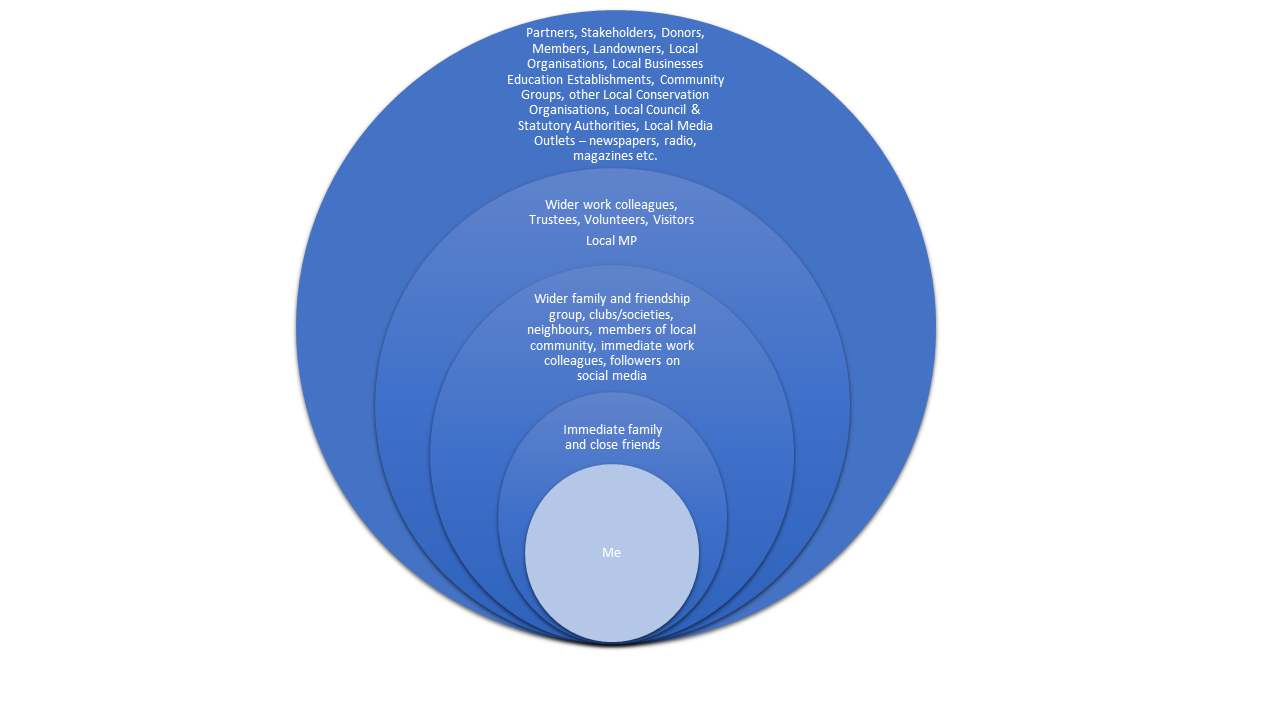Inside Out
Inside Out
Anyone else struggle with imposter syndrome? Or self-confidence? These are my career demons. I often feel like a fraud. I think I should be able to ID more wildlife than I can and that I should be able to prescribe more conservation management than I am able or that my knowledge should be more up to the minute (amongst many other things including whether I should really be writing this for you). I have always battled with whether I’m “enough of a conservationist”. As I wrote in my welcome message, my roles to date have been predominantly people focussed. For a long-time I thought the reasons behind my employment were centred solely on my administrative and communication skills and my conservation qualifications and experience were just a bonus. Self-doubt has always been, and still is my biggest hurdle in personal effectiveness.
I don’t think I’m the only one who thinks this way. I’ve worked with many talented conservationists who are nervous to cross over into the area of people engagement, deliver a talk or lead a guided walk for fear of not being qualified enough/ not enough experience/not good enough ID etc. etc. I think lots of people feel they must be an expert in their subject before they have the legitimacy to preach to others about it.
I have over fifteen years of experience behind me now and have worked with some amazing co-workers who have helped me improve my confidence and see myself differently. For me, the turning point came when I shifted my perspective of myself from the negative to the positive. Instead of focussing on my weaknesses I identified my strengths and began seeing myself as more of an authentic type of conservationist and in doing so I levelled up. My purpose was not about highly effective administration – it was about people. I think I just let go of who I thought other people expected me to be and started to embrace the skills I have that can add value to whatever I’m working on. I saw myself more as a unique piece in the jigsaw of the skillset of the whole team rather than striving to replicate something that doesn’t really exist. Importantly, I also learnt that my potential wasn’t limited by my position in the organisation and that I could lead change all around me in different ways.
When Barry describes inside-out leadership he talks about how you must lead yourself effectively to gain the legitimacy to lead others. This was my first step to achieving this. Once I was able to take myself more seriously, I gained confidence that others would too – the people in the middle circle of Barry’s inside-out leadership model.
On reflection, during my career to date I have worked with literally thousands of people, and the number of lovely people who show a genuine interest in the messages I’ve tried to get across have far outweighed any negativity that has come my way. I have experienced kindness, support, reassurance and empathy, and every mistake, embarrassing moment or finding myself out of my depth have only strengthened my resolve to do and become better. I should not have worried as much as I did in the early stages of my career; we can all fix our weaknesses over time, but we don’t always use our strengths to their full potential from the start. As I say, I still have my career demons but these days they don’t hold me back to the same degree.
In Barry’s inside-out model there are three circles: the inner circle “leading ourselves” is the beginning of our leadership journey. The middle circle “leading others” consists of the people immediately around us. The third “leading in the wider word” is the ripple effect of being successful in the inner circles.
I personally view the middle section as gradually moving outwards as our competence and roles evolve in our career. In my role as a Community Engagement Officer my “leading others” circle grew to become like the picture below.

Each of these audiences has different needs and expectations, and it is a real skill to be able to act accordingly and set your tone at the right level for whoever you are working with at the time. It takes courage, practice and experience over time to get this right. It’s why it’s so important that you lead from the inside-out – you will need to draw on the strength you have built in the inner circle to demonstrate your credibility to influence those around you. Along the way you are going to make mistakes and have embarrassing moments, it’s all part of the development process. They will only add to your authenticity as a leader so don’t let your demons stop you from pushing the boundaries of your comfort zone and reaching your potential.
Head over to Exercise 3 to consider your own circles of influence.
